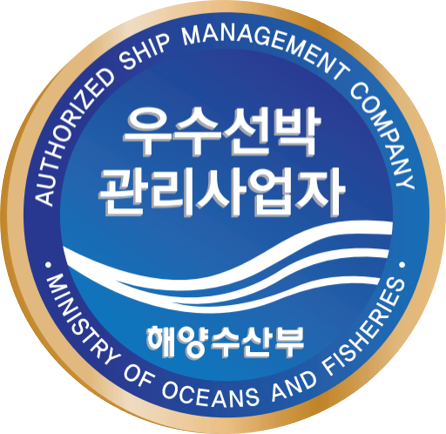ECDIS Detention data by AMSA PSC
페이지 정보
작성자 최고관리자 댓글 0건 조회 1,424회 작성일 21-01-19 17:17본문
ECDIS Detention data by AMSA PSC
Jan.12th,2021
When using the ECDIS, it is necessary to know specifically what the problems for navigators are. I would like to extract the problems related to the use of ECDIS in regard to the current status of ships operated around the world.
The following data presents examples of vessels detained when serious deficiencies were pointed out during Port State Control (PSC) inspections carried out by the Australian Maritime Safety Authority (AMSA).
This list shows all vessels detained due to deficiencies related to ECDIS from all PSC inspection conducted in Australia from 2017 to 2019, as outlined below. (The list includes ships detained due to multiple deficiencies, including ones related to ECDIS.)
The list of ECDIS-related detentions by the AMSA (2017–2019)
|
|
Vessel type |
Deficiency |
Detention period (Day-hour-minute) |
Reasons for detention release |
|
2017 |
Bulk carrier |
The bridge team members are not familiar with how to boot up the ECDIS. |
1-3-15 |
SMS audited |
|
2018 |
Gas carrier |
Their ECDIS safety procedures are inadequate and the crew are not familiar with the ECDIC and charts. |
0-5-0 |
Conducted additional SMS audit and training |
|
Livestock carrier |
Unable to fix position on the ECDIS. |
3-14-30 |
Conducted additional SMS audit |
|
|
|
Bulk carrier |
The crew cannot perform manual plotting on the ECDIS. |
1-4-30 |
Conducted additional SMS audit |
|
|
General cargo ship |
The crew are not familiar with the functions and important settings of the ECDIS, and cannot explain navigation information and procedures for important ECDIS settings. |
7-0-50 |
Conducted additional SMS audit |
|
Container vessel |
The ECDIS critical safety parameters cannot be set correctly, and navigators cannot activate the ECDIS critical alarms. |
1-3-30 |
Conducted additional SMS audit |
|
|
2019 |
Grain carrier |
The crew violated ECDIS safety procedures of the company (safety depth is less than its draught) and were not familiar with the ECDIS forward monitoring function. |
2-1-54 |
Conducted additional SMS audit |
|
Livestock carrier |
The navigator did not use the ECDIS for navigation and did not use the latest charts for the ECDIS. The navigators have not carried our ECDIS training on board. |
3-0-0 |
Conducted additional SMS audit |
|
|
|
Bulk carrier |
The navigators could not explain the ENC for the ECDIS for the next voyage. |
1-6-0 |
Fixed the defects |
|
|
Bulk carrier |
Voyage plan was not berth-berth and the crews were not familiar with monitoring using the ECDIS. |
3-13-15 |
Fixed the defects |
|
|
Bulk carrier |
No position fixing on the ECDIS or paper chart from pilot station to berth. |
1-5-10 |
Fixed the defects |
|
|
Bulk carrier |
None of the ENCs required for the voyage were updated and some had expired several weeks ago. Also, the digital admiralty sailing directions required for navigation had not been updated to the latest editions. |
2-10-30 |
Conducted additional SMS audit |
1. Number of vessels detained
The number of vessels detained due to problems related to ECDIS was 1 (2017), 5 (2018) and 6 (2019). The total number of detained vessels each year was 165 (2017), 161 (2018) and 163 (2019). So, the numbers of vessels detained for reasons related to ECDIS was very small compared with the total number of vessels detained.
2. Deficiency
The deficiencies are roughly classified as follows. It is very disappointing that the position fixing, the basic element of navigation, cannot be performed using the ECDIS.
Not familiar with ECDIS operations and functions: 7
Unable to fix position: 3
Problems for operation of electronic charts: 5
3. Detention period
The detention period is about one to three days (only one ship was detained for seven days), which is a significant loss for shipowners and charterers.
4. Reasons for detention release
Nine of the twelve ships have undergone additional SMS audits and been released. Designated Person Ashore (DPA) and/or SMS trainer for the management company provided ECDIS education and training on board. After the trainings, SMS audits were conducted.
In this way, there are still problems with the function and operation of the ECDIS, and all navigators, including masters, need to be familiar with ECDIS in order to achieve navigation as safe as that using paper charts.
These indications by the PSC are good opportunities for the navigators to recognize the importance of ECDIS operation. We hope, as a result, these will contribute to prevent accidents related to ESDIS.
첨부파일
- OCIMF - Recommendations on Usage of ECDIS and Preventing Incidents.pdf (4.9M) 0회 다운로드 | DATE : 2021-01-19 17:17:50




